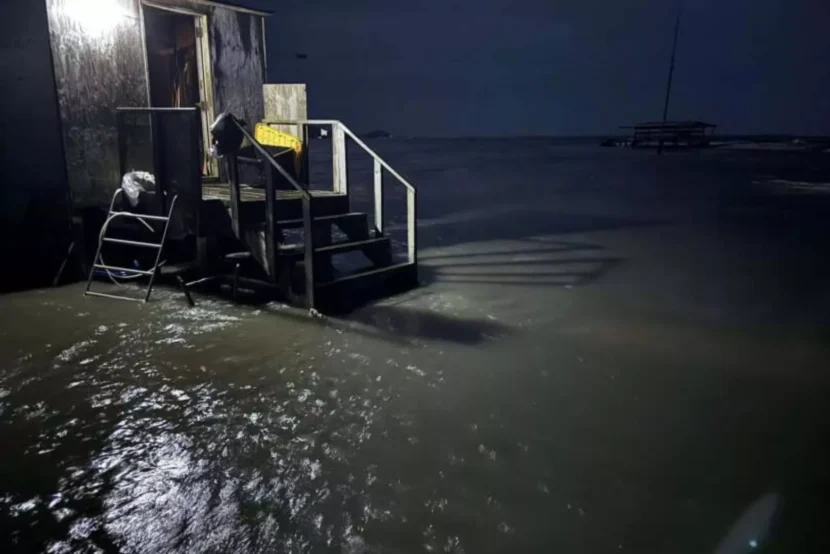
Strong tidal action and fierce southerly winds inundated low-lying areas of the Kuskokwim Delta coastal community of Kwigillingok on Friday evening.
Michael Brown, with the National Weather Service in Anchorage, said that wind gusts as high as 55 miles per hour pushed waters well above the normal high tide line.
“When you combine 3 to 4 feet of extra water with a tide that’s already 2 feet above the normal high tide, we’re looking at 5 to 6 feet all of a sudden above the average high tide line. And that’s what we had,” Brown said.
According to Native Village of Kwigillingok Tribal Administrator Gavin Phillip, multiple boardwalks were submerged in the lower part of the community and water levels were on par with severe flooding seen in August 2024.
Phillip did not report any significant damage as of Sunday afternoon, but said that he had to act quick Friday to move his snowmachine and boat to higher ground.
“While me and my son were moving that boat, the tide was incoming and it was very swift. Maybe on a matter of half hour I almost lost my trail to home,” Phillip said. “Roughly maybe 27 homes were isolated.”
Phillip said that on Friday evening, the tribe put out the word on VHF radio and social media to residents of the low-lying areas to shelter in place until waters receded.
Phillip said that dozens of Orthodox followers observing Slaviq starring and feasting, including his wife, had to wait out the high waters in one community member’s home for around three hours. He said that both Slaviq celebrations and Moravian church services are on hold until a coastal flood advisory expires late Monday.
The community of roughly 600 people has grappled for decades with flooding, permafrost thaw and erosion of as much as 15 feet per year of the banks of the Kwigillingok River, which empties into the Bering Sea just below the community.
On Saturday Kwigillingok’s tribe joined Kipnuk in being among the first Alaska tribes ever to receive a federal disaster declaration from the Federal Emergency Management Agency for damage wrought by the August 2024 floods.